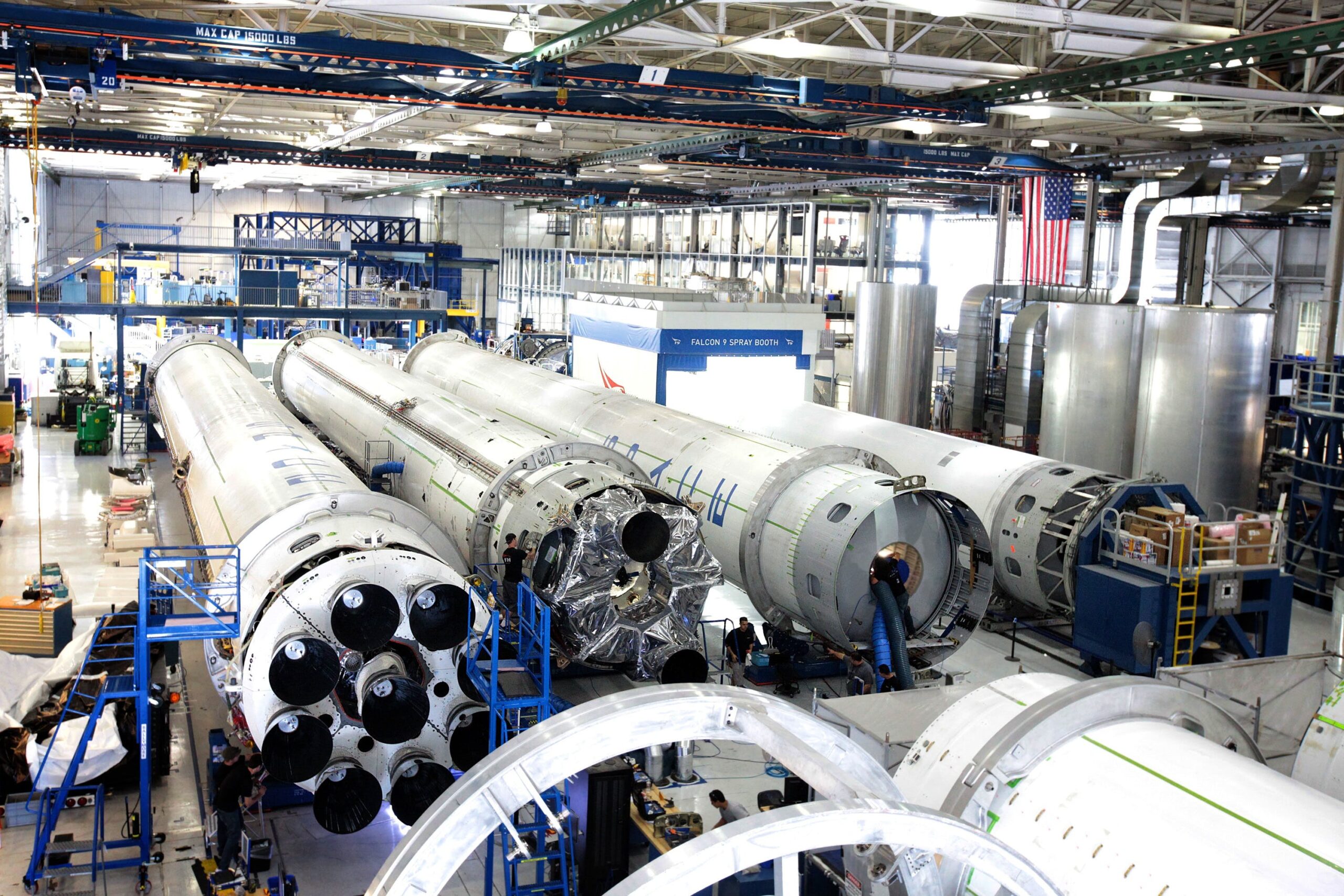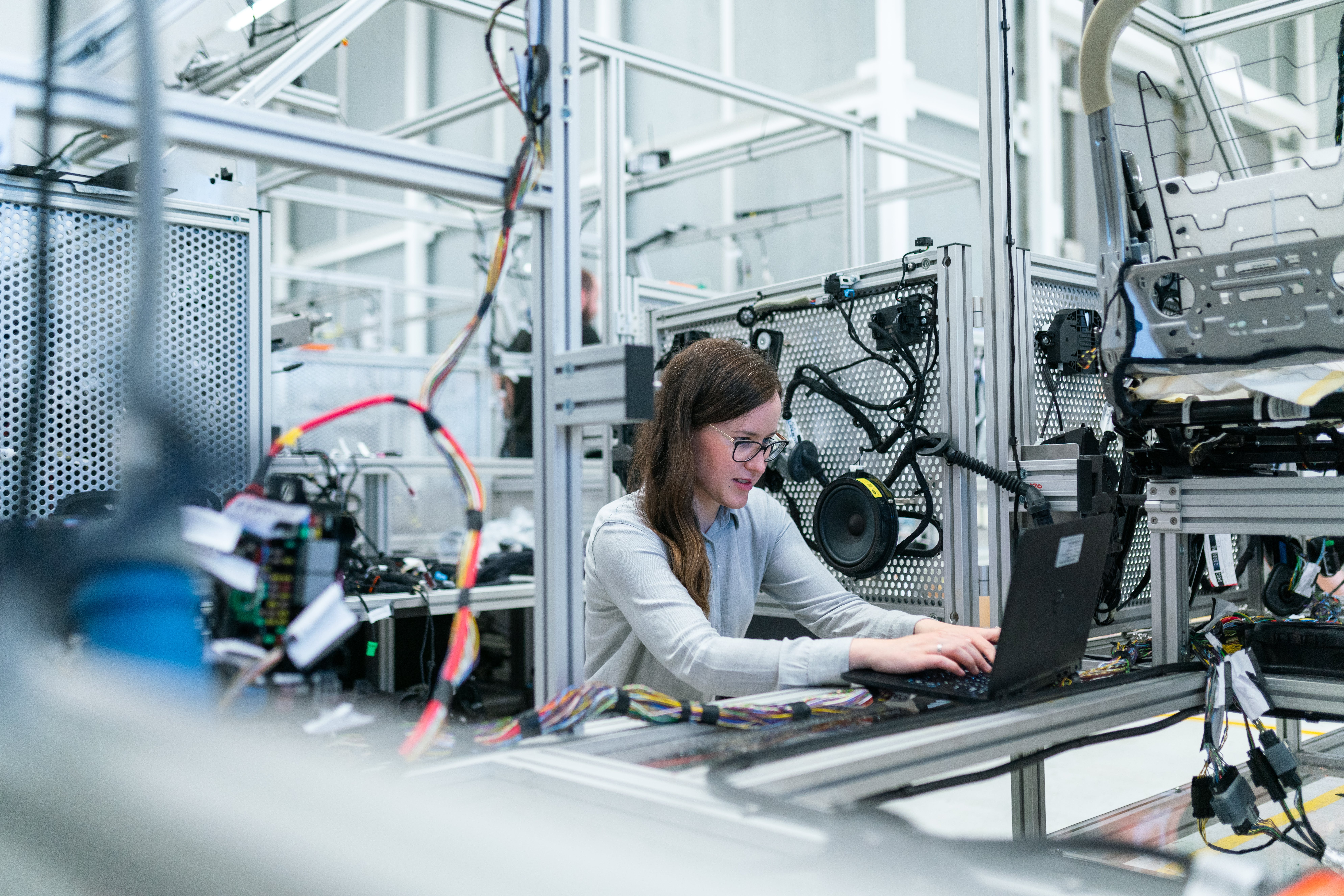Step into the future of manufacturing with a revolution that’s rewriting the rules: Industry 4.0 technologies. Are you ready to confront the challenges of an ever-evolving industrial landscape? Imagine machines that predict their own maintenance needs, factories that learn and adapt autonomously, and supply chains that synchronize seamlessly. It’s a world where data isn’t just power; it’s the heartbeat of production. Join us on a journey where we explore the cutting-edge realm of Industry 4.0 technologies, demystify its complexities, and reveal how it’s transforming manufacturing as we know it.
What is Industry 4.0?
Let’s start with the basics, shall we? Imagine a world where your production line isn’t just a bunch of machines working in isolation, but a symphony of interconnected devices, constantly sharing information. This, my friend, is the essence of Industry 4.0. It’s like turning your factory into a well-choreographed dance performance where every move is precise and perfectly timed.
The Evolution of Manufacturing
Before we delve into the exciting future, let’s take a quick trip down memory lane. Remember the old days when manufacturing was all about sweat and elbow grease? Well, those days have evolved faster than you can say “assembly line.” From steam engines to automation, each era brought its own set of innovations, and now, we’re standing on the brink of the fourth industrial revolution.
The Impact of Technology on Manufacturing
Technology has always been a game-changer, but what’s different this time? Brace yourself for this revelation: it’s not just about machines doing the heavy lifting anymore. It’s about machines that can think, adapt, and communicate. The impact? A manufacturing landscape that’s not just efficient but also smarter than ever before. Think of it as going from a basic mobile phone to a super-smart, app-loaded smartphone.
Key Concepts of Industry 4.0

Now that we’ve scratched the surface, let’s dive deeper into the core concepts of Industry 4.0. These are the building blocks of the revolution that’s shaping the future of manufacturing.
1. The Fourth Industrial Revolution
It’s not every day that we witness an industrial revolution, but here we are, on the cusp of the fourth. Just as the steam engine transformed the first, electricity the second, and computers the third, the fourth is all about blurring the lines between the physical and digital worlds. It’s like we’ve entered a new dimension of manufacturing, and it’s incredibly exciting.
2. Smart Factories: A Paradigm Shift
Picture this: a factory that knows what it needs to produce, schedules maintenance on its own, and even orders raw materials when supplies run low. Sounds like science fiction, right? Well, it’s not. Smart factories are the cornerstone of Industry 4.0, and they’re changing the game. It’s like having a factory manager who never sleeps and always makes the right call.
3. Interconnected Systems: The Backbone of Industry 4.0
Imagine your entire production line sharing information seamlessly, like a team of synchronized swimmers in a sparkling pool. That’s the beauty of interconnected systems in Industry 4.0. It’s all about devices talking to each other, from sensors on the shop floor to the software in the cloud. This level of connectivity transforms data into actionable insights, making your manufacturing process smarter, faster, and more efficient than ever before.
The Internet of Things (IoT) in Manufacturing

1. How IoT is Transforming Manufacturing
Imagine your factory as a living, breathing organism. With IoT, it’s no longer a stretch of the imagination. Picture this: machines and devices all around your production floor are equipped with sensors and connected to the internet. They’re like the nerve endings of your manufacturing body, constantly feeding data back to your brain. This data isn’t just numbers; it’s insights that can revolutionize your operations. It’s like having a GPS for your factory, knowing where everything is, and how it’s performing, in real-time.
2. Real-time Data and Analytics
You know that feeling when you’re driving and your GPS gives you real-time traffic updates, guiding you to the fastest route? Well, that’s what real-time data and analytics do for manufacturing. With sensors and smart devices gathering data round the clock, you get a live feed of your production process. It’s like having a control center where you can spot bottlenecks, optimize workflows, and make data-driven decisions on the fly. Efficiency? You’ve got it in spades.
3. Predictive Maintenance: Maximizing Efficiency
Let’s talk about maintenance for a moment. In the past, it was often a reactive scramble when machines broke down. But with IoT, it’s like having a crystal ball. Sensors can predict when a machine might fail, based on its performance data. It’s like knowing your car needs an oil change before it conks out on the highway. This means less downtime, more productivity, and cost savings that can make your accountant do a happy dance.
Elevate manufacturing operations with IIOT – Embrace the future of industry efficiency now!
Big Data and Analytics in Manufacturing

1. Harnessing Data for Decision-making
Think of your data as a treasure trove, waiting to be unearthed. With the right tools and analytics, you can turn raw data into actionable insights. It’s like having a magic wand that helps you see patterns, anomalies, and opportunities within your production process. Are your products meeting quality standards? Are there production bottlenecks? What can be optimized? Your data holds the answers.
2. Data-driven Quality Control
Quality control is a critical aspect of manufacturing. With Big Data and analytics, you can take quality control to a whole new level. Imagine being able to identify and address quality issues in real time, preventing defective products from reaching your customers. It’s like having a superhero sense for quality, ensuring that every product that leaves your factory meets the highest standards.
3. Supply Chain Optimization through Analytics
Your supply chain is the circulatory system of your manufacturing operation. Analytics can optimize it like a well-oiled machine. From demand forecasting to inventory management, you can make informed decisions that keep your supply chain lean and agile. It’s like having a GPS for your entire production ecosystem, helping you navigate efficiently through the complex world of logistics.
Unlock the potential of Big Data in Industry 4.0. Understand and innovate now!
Artificial Intelligence (AI) in Manufacturing
1. Machine Learning in Production
Imagine having a production line that learns and adapts like a seasoned chef perfecting a recipe. That’s the magic of machine learning in manufacturing. It’s like having an apprentice who gets better with every task. Machines analyze historical data to fine-tune processes, reduce defects, and improve efficiency. Just like a chef who adjusts seasoning to create the perfect dish, machine learning optimizes your production to perfection.
2. AI-powered Robotics
Ever seen those nimble robots on the factory floor? They’re not just here to steal the show; they’re AI-powered workhorses. Picture this: robotic arms working with surgical precision, guided by AI algorithms. It’s like having a team of super-focused employees who never get tired, never make mistakes, and never need a coffee break. These robotic marvels boost productivity, take on repetitive tasks, and even handle hazardous jobs, ensuring safety and efficiency.
3. AI-driven Demand Forecasting
Forecasting demand used to be as unpredictable as the weather. But with AI, it’s like having a crystal ball for your inventory. AI algorithms crunch historical data, market trends, and even external factors to predict future demand accurately. It’s akin to a weather forecast that helps you prepare for every storm. With AI-driven demand forecasting, you can optimize production schedules, minimize excess inventory, and ensure that your products are ready to meet customer demand.
Implementing Industry 4.0 Technologies in Your Manufacturing Business

Now, you might be wondering how to bring all these exciting technologies and sustainability practices into your own manufacturing business. Let’s break it down.
1. Assessing Readiness for Industry 4.0
Before you dive in, it’s essential to take stock of where you stand. Think of it like preparing for a long road trip. Assess your current infrastructure, skills, and resources. Identify gaps and areas where Industry 4.0 technologies can make the most significant impact. This assessment is your roadmap to success.
2. Steps to Embrace Smart Manufacturing
Embracing Industry 4.0 is like learning a new dance—exciting but challenging. Start with a clear strategy. Define your goals and prioritize areas for improvement. Invest in training your workforce because they’re your partners in this journey. And remember, it’s a gradual process, so take one step at a time.
3. Measuring ROI in Industry 4.0 Adoption
Just like any investment, you want to see returns. But how do you measure the ROI of Industry 4.0 adoption? Think of it as tracking your fitness progress. Set clear metrics—increased efficiency, reduced waste, improved product quality—and regularly evaluate your results. Over time, you’ll see how these changes translate into tangible benefits for your bottom line.
Suryacipta: Pioneering Industry 4.0 Excellence in Indonesian Industrial Zones

Suryacipta, a leading provider of cutting-edge industrial facilities, seamlessly integrates into the future of manufacturing. Our strategically located industrial zones are equipped to facilitate the adoption of Industry 4.0 technologies. From smart factories to interconnected systems, Suryacipta empowers businesses to harness the full potential of IoT, real-time data analytics, and AI-driven robotics. With the supporting infrastructures in Suryacipta, you can optimize the operations, reduce downtime, and enhance product quality. Join us in this journey towards a more efficient, data-driven, and sustainable manufacturing landscape. Embrace the opportunities of the fourth industrial revolution and unlock your business’s true potential in Suryacipta.


